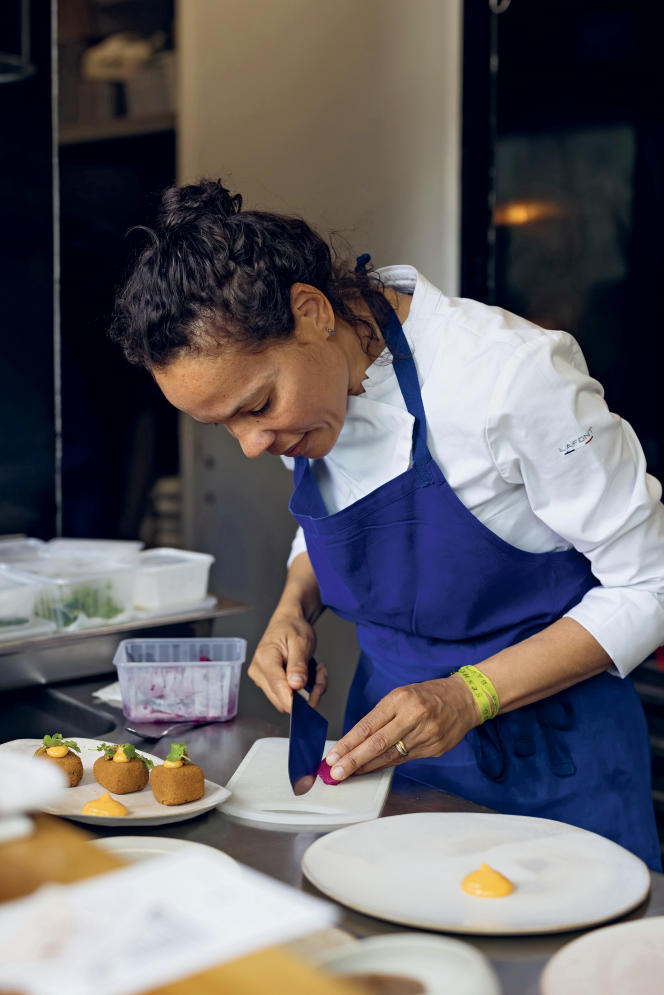A Brazilian enclave exists in Paris. Behind the tall towers of the National Library of France, at the foot of dark and functional buildings, two bright restaurants adorned with large windows face each other. One, Nosso, is a gourmet restaurant (formula from 38 euros); the other, Tempero, a hybrid place, between bistro and grocery store (from 26 euros). A frail silhouette goes back and forth incessantly between these two greedy lungs of the neighborhood: that of the boss, Alessandra Montagne, 46 years old. Bright smile, sun-drenched accent, the chef embraces her regulars like old friends.
In this end of the 13e district lacking in good addresses, she has recreated a haven of sweetness, in which she flirts with French haute cuisine and specialties from her native country. Chicken from a farm in Milly-la-Forêt (Essonne) is paired with canjiquinha, a kind of Brazilian polenta; Moqueca sauce, made from coconut milk, accompanies line-caught fish. Its colorful plates open out to sea.
The little girl she was, and who perched on a stool to help her grandmother in the kitchen, in Poté, a village moved back more than 500 kilometers from Rio de Janeiro, could she have imagined this culinary destiny? Impossible. As a kid, she didn’t think cooking could be a career. The chef took time to digest a very painful past. Absent parents, forced marriage, violence… Cooking, learned late in life, allowed her to rebuild herself, to be loved and respected. Today she dares to confide in a book which speaks as much about her as about her recipes (From Rio to Paris, my favorite cuisineFlammarion, 256 pages, 35 euros) and sublimates its battered journey in a unique map in France.
At Nosso, the meal tells your story. As an appetizer, you offer coxinhas, these croquettes that you sold by the thousands in Poté…
I couldn’t imagine cooking it again, I wanted to close the door on all that. It was my second in the kitchen, Gustavo Galvao, who shook me and convinced me that I could not deny my roots. Two years ago he asked me, “What was the first thing you cooked?” » It was the coxinhas, which I learned to make from an old lady in the village. I sold them after school so I could escape to an aunt’s house in Sao Paulo. We started from this dish to design a tasting menu. A way to reconcile myself with my past and take responsibility for myself as a leader, something I had never dared until then. When I made the first coxinhas for the menu, with the chicken meat scraped from the carcass, cooked in broth, flour, milk… I broke out in a cold sweat.
You have 70.66% of this article left to read. The rest is reserved for subscribers.
